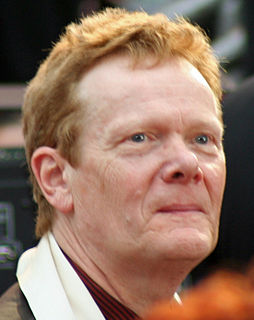A Quote by Ursula K. Le Guin
The borderline between prose and poetry is one of those fog-shrouded literary minefields where the wary explorer gets blown to bits before ever seeing anything clearly. It is full of barbed wire and the stumps of dead opinions.
Related Quotes
Poetry has an indirect way of hinting at things. Poetry is feminine. Prose is masculine. Prose, the very structure of it, is logical; poetry is basically illogical. Prose has to be clear-cut; poetry has to be vague - that's its beauty, its quality. Prose simply says what it says; poetry says many things. Prose is needed in the day-to-day world, in the marketplace. But whenever something of the heart has to be said, prose is always found inadequate - one has to fall back to poetry.
There was a danger whenever I was on home ground. It was the danger of seeing my life through other eyes than my own. Seeing it as an ever-increasing roll of words like barbed wire, intricate, bewildering, uncomforting—set against the rich productions, the food, flowers, and knitted garments, of other women’s domesticity. It became harder to say that it was worth the trouble.
Poetry is the most direct and simple means of expressing oneself in words: the most primitive nations have poetry, but only quitewell developed civilizations can produce good prose. So don't think of poetry as a perverse and unnatural way of distorting ordinary prose statements: prose is a much less natural way of speaking than poetry is. If you listen to small children, and to the amount of chanting and singsong in their speech, you'll see what I mean.
In high school, in 1956, at the age of sixteen, we were not taught "creative writing." We were taught literature and grammar. So no one ever told me I couldn't write both prose and poetry, and I started out writing all the things I still write: poetry, prose fiction - which took me longer to get published - and non-fiction prose.
Certainly for me prose has a dilatory capacity, insofar as I don't trust my abilities in prose. I imagine I could have done the same thing in poetry, but sometimes I feel more fluent in poetry than in prose, and as a consequence perhaps I might pass too quickly by a thing that I might, in prose, have struggled merely to articulate. That struggle creates space, and it seems to me a particular kind of space into which memory flows easily. I suspect I think better in poetry, however.
One can imagine having a procedural rule that anything ambiguous should be treated as the Taj Mahal unless we see that it is labelled "fog". The motorist replies: "What sort of rule is this? Surely the best guarantee I can have that the fog is fog is if I fail to see the sign saying 'fog' because of the fog."





































